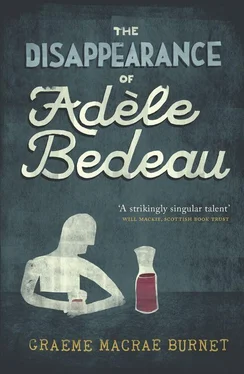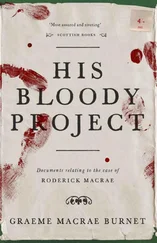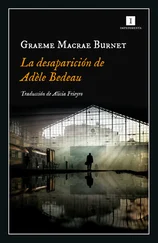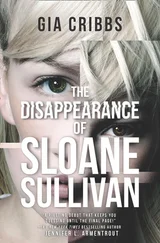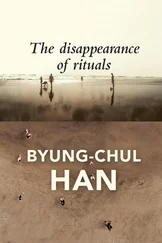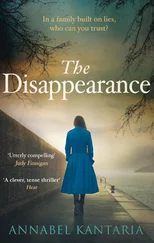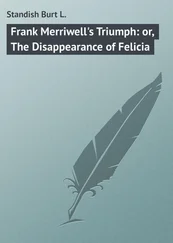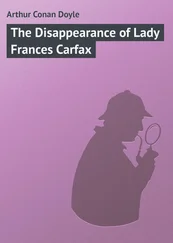Manfred swivelled around on his stool and took in his surroundings for the first time. The place was dingy and brown. Until that moment, he had thought he was the only customer, but, in fact, the place was well populated by grim-faced men in various stages of inebriation. As Manfred surveyed the room, none of his fellows so much as glanced in his direction. He had become invisible. He drank down his whisky and ordered another. He felt giddy.
At a certain point Manfred made an attempt to engage the barman in conversation. He was a young chap with an open, pleasant face. He did not seem averse to conversation, but Manfred had difficulty following his responses and the exchange soon fizzled out. Later, a man took the stool next to Manfred’s at the counter and ordered a pastis . He was wearing a three-piece suit with a lilac handkerchief in the breast pocket. He clumsily placed a briefcase on the floor at his feet and struggled to pour the water from the little jug into his glass. He was well on his way to oblivion. Manfred made a comment to this effect. The man turned his head towards the source of the sound, took some time to focus and then returned his attention to his drink without a word. Manfred repeated his remark, this time accompanying it with a sharp prod to the man’s upper arm.
The man looked round, steadying himself on the bar.
‘Do I know you?’ he said.
Manfred grinned at him. ‘The name’s Baumann, Manfred Baumann.’
The man looked blankly at him. Manfred thought of inviting him to accompany him to Simone’s. He seemed like the kind of fellow with whom one might enjoy a night on the town.
GORSKI SPOONED THREE SUGARS into his coffee. Céline looked on disapprovingly. She did not drink coffee and she never tired of telling Gorski his sugar intake would lead to diabetes. It was eight o’clock. He was sitting in his shirtsleeves, his jacket slung over the back of his chair. The coffee stimulated Gorski’s desire for the first cigarette of the day, but he did not dare light up over the breakfast table. Not that either of them ate breakfast. Gorski’s stomach always felt unsettled in the morning. Usually he bought a croissant or a pain au chocolat at the bakery on Rue de Mulhouse and ate it at the station midway through the morning. Céline poured out her tea and sat down. They had barely seen each other since the evening of her event at the shop.
‘The show was good,’ he said.
‘Thanks for coming,’ said Céline. She had a strangely inexpressive way of speaking, so that it was often difficult for Gorski to discern whether she was being sarcastic. He chose to take her words at face value.
‘I thought it was very good,’ he said.
Céline raised her eyebrows sceptically. Clearly he was still in the doghouse.
‘Did you sell much?’ he persisted.
‘It’s not all about selling,’ she said. ‘It’s about promoting the brand.’
Céline often talked about ‘promoting the brand’, but Gorski had little idea what she meant by it.
‘Of course,’ he said. He drank his coffee. Céline stood up.
‘I hope you’re not planning to wear that tie,’ she said.
Gorski resisted the temptation to respond antagonistically. ‘I was, yes,’ he said in an even tone.
Céline shook her head in exasperation and left the kitchen without another word. A few minutes later he heard the front door close and the sound of her car starting. Gorski topped up his coffee and lit a cigarette. As it was Saturday there was little chance of Clémence making an appearance before noon. He took a tube of antacids from the pocket of his jacket and dropped two into a glass of water. He watched them froth up then disperse in the glass. When he looked up, Clémence was standing in the doorway. She was wearing a pair of his old pyjamas, the sleeves rolled up to the elbow. Gorski could not hide his pleasure at seeing her. Clearly she had only come down when she had heard her mother leave.
‘Heartburn?’ she said.
‘Just a little,’ said Gorski.
‘You should eat better. You look terrible.’
‘Do I?’
Clémence sat down at the table. Gorski poured her some coffee. He did not know what to say to her. It was unusual for them to be alone together. Usually they bonded through childishly making fun of Céline behind her back. Perhaps she had come downstairs because there was something she wanted to talk to him about. She got up and found the remains of a baguette in the bread bin. She nibbled at the end of it, allowing crumbs to fall onto the floor.
‘What you up to today?’ Gorski asked. He tried to make it sound casual, as if he was not prying into her business.
Clémence looked at him. ‘I’m meeting some friends in Mulhouse.’
Gorski nodded, but he had no idea who her friends were or what they might do together. He thought of what Alex Ackermann had told him of his evenings with Adèle Bedeau. Of course, Adèle was older than Clémence, but at his daughter’s age he had already had his fumblings on the farm with Marthe. The thought of Clémence engaged in similar activities horrified him.
‘You need a lift?’ he asked.
Clémence smiled indulgently.
‘We’re getting the train. Thanks.’
Then she took a mouthful of coffee and went back upstairs.
At ten o’clock Gorski was back at the foot of the drive leading to the Paliard house. He had taken the precaution of phoning ahead, but still, without thinking, he had left his car on the road, rather than driving up to the house. The nurse came to the front door. She made no pretence of welcoming him.
‘You’ve got ten minutes,’ she said.
Paliard was waiting in the drawing room. His skin looked even greyer than it had the previous day. The nurse followed Gorski in and stood by the door.
‘Good to see you again, Inspector. You’ll excuse me if I don’t get up.’
‘Of course,’ said Gorski. He could not work out if Paliard’s breezy greeting was meant in jest. The old man motioned for him to take a seat. On the table a silver tray with a decanter of sherry and two glasses had been set out.
‘You’ll have a drink with me, Inspector?’ said Paliard.
Despite the early hour Gorski nodded his consent. He had no wish to do anything to dampen the old man’s good humour. Paliard struggled forward on the sofa and poured out two large measures. Gorski took his glass and toasted Paliard’s good health. He had made up his mind not to beat around the bush.
‘Thank you for seeing me again, M. Paliard,’ he began. ‘I only have one question for you.’
Paliard interrupted him. ‘Before you begin, Inspector, if you’ll indulge me, I have a question for you. The tramp, Malou — what happened to him?’
Gorski glanced towards the nurse. ‘I’m not sure we’ve got time for that.’
‘Don’t worry about her,’ said Paliard. ‘She’s my employee. She might not act like it, but she is. We were discussing our friend Malou.’
‘He died in prison,’ said Gorski.
Paliard nodded. ‘And you did nothing to clear his name?’
Gorski shrugged. ‘The case was closed. There was nothing to be gained from opening old wounds.’
‘No?’ said Paliard. ‘But you said yourself that if Malou was not the culprit then the real killer was still at large. Was it not the case that you just didn’t want to ruffle any feathers? Perhaps you didn’t want any black marks against your name that might hinder your speedy rise through the ranks?’
Gorski stared at him. Paliard raised his eyebrows. ‘Well?’ he said.
‘I did what I could. The fact is there were no other suspects. There were no more leads to follow.’
‘Nevertheless, you continued to return to the woods?’
‘Yes.’
Читать дальше
